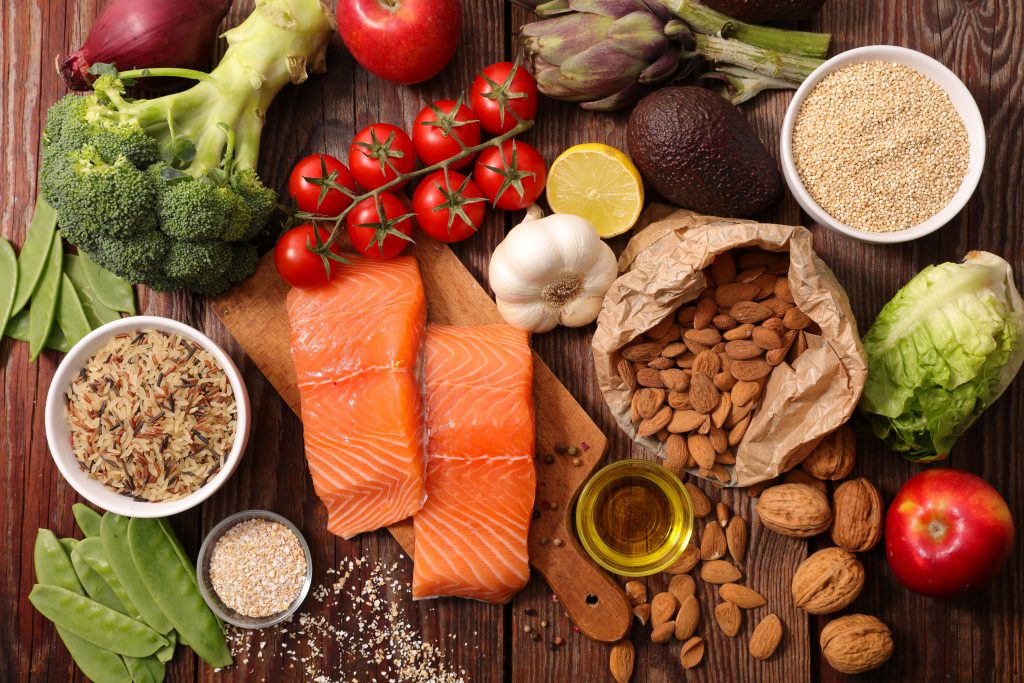Summer Smiles Discount
Save Up to 15% On 1 Treatment Item!
DOWNLOAD COUPONStarting from an early age, many children learn about “sugar bugs,” sugar monsters,” and other terms to describe plaque—that sticky substance that coats the teeth, eventually leading to cavities. Alongside this knowledge, we probably gleaned that candy, soda, and other sweet treats—combined with neglecting brushing and flossing—are surefire ways to invite those cavity-producing “sugar bugs.”
Diet and nutrition in oral health during our youth was likely not on the top-most list of priorities, but more of a fleeting warning (from adults and maybe a dentist or two). Now, however, with more studies confirming the connections between oral health and nutrition, it is more than worthwhile to learn how a healthy diet (or alternately, a poor one) can influence not only our oral health, but also our overall health too.
 The American Dental Association (ADA), describes the relationship between oral health, diet, and nutrition as “bidirectional.” Essentially, this means that diet and nutrition have an effect on oral health—and vice versa—with oral health affecting how nutrients are consumed (and impacting overall health).
The American Dental Association (ADA), describes the relationship between oral health, diet, and nutrition as “bidirectional.” Essentially, this means that diet and nutrition have an effect on oral health—and vice versa—with oral health affecting how nutrients are consumed (and impacting overall health).
Going back to the lessons many of us learned during childhood, there is a confirmed association between sugar and increased risk of developing cavities (or, “dental caries”). But, consumption of sugar-sweetened drinks and foods are not the only aspects of our diet that can impact dental health.
Carbohydrates can potentially lead to tooth decay and other oral health diseases and conditions if not monitored. Many complex carbohydrates are found in some of the healthier foods available to us:
Simple carbohydrates are found in less healthy options such as raw and brown sugars, corn and high-fructose corn syrup, and are often snuck into:

When you eat carbohydrates—say a bag of chips—it sets off a chain reaction in your mouth. Bacteria in the form of dental plaque produces an acid that demineralizes the enamel of your tooth.
Another edible category that is harmful to tooth enamel is acidic foods. While even fresh fruits and vegetables—such as tomatoes and citrus fruits—contain healthy properties like Vitamin C, the acids they contain can erode the tooth enamel. For this reason, the ADA recommends that if you do incorporate acidic foods into your diet, to “eat them as part of a meal, not by themselves.”
Making sure you avoid foods and drinks that can compromise your oral and dental health, replacing them with nutritious ones, helps bring balance. And, in doing so, helps stabilize the “bidirectional” relationship of diet and nutrition with oral health we discussed earlier.
If a person eats poorly, it can eventually lead to serious oral health problems such as cavities, periodontal disease, and even tooth loss. Once this happens, it can make it more difficult to consume healthy foods such as crunchy fruits and vegetables—full of important nutrients and vitamins—and oral health will continue to decline as a result.
Now that we have identified the food groups that exacerbate oral health problems, let’s explore those that encourage positive oral health. Thankfully, the vitamins and nutrients that support optimum oral health can be found in many natural foods; these include:

Combinations of these vitamins and nutrients can be found in:
In addition to incorporating more of these healthy items into your diet, we also recommend upping your water intake. Not only is water wonderful as a source of hydration for your mouth (and body), but it will also keep your mouth free of residual foods and bacteria. Drink plenty of water with and after meals.
It’s also best to limit snacking in between meals, and if you do so, drink water or chew a sugarless gum (containing xylitol). Xylitol has been shown to inhibit certain plaque-building bacteria.
Of course one of the best ways you can ensure positive oral health—alongside a nutritious diet—is practicing routine oral hygiene.
To help make sure your brushing technique is at its best, we’re offering a limited coupon for a free Oral-B Electric Toothbrush for new patients!
And, regular dental visits are equally important in creating a strong foundation for oral health. If it’s been a while since you’ve had a dental appointment, we encourage you to schedule a visit now. Or, call us anytime at 215-898-7337 for questions.
Get Your Appointment Now
We look forward to serving you and your family.